Prof. Muhammad Hamid Zaman and Dr. Afreen Siddiqi
 Pakistan’s flood of 2010 was the largest in the country’s history. We still haven’t recovered from the incredible destruction of life, property and infrastructure that it left in its wake. No one can argue that if such a calamity were to occur year after year, the existence of the country would be in jeopardy. The economic impact of a 2010 like flood year after year is no different than the long-term consequence of illiteracy in Pakistan!
Pakistan’s flood of 2010 was the largest in the country’s history. We still haven’t recovered from the incredible destruction of life, property and infrastructure that it left in its wake. No one can argue that if such a calamity were to occur year after year, the existence of the country would be in jeopardy. The economic impact of a 2010 like flood year after year is no different than the long-term consequence of illiteracy in Pakistan!
This evaluation and other mind-numbing statistics were made public earlier this week by the Pakistan Education Task Force. You can find the report here. According to the report, ten percent of all the children in the world, who are not in any school, live in Pakistan. This places Pakistan second on the list of “out-of-school” children in the world. The number of children not in school in Pakistan is around seven million, which is roughly the entire population of Lahore. The numbers are even worse for adults, particularly women in rural areas, where less than a third of the female population has ever attended any school.
Our annual spending on education, which should be at least upwards of 4%, has gone down to 1.5% of our GDP. Perhaps a more shocking fact is that this amount is less than the subsidy given to PIA alone.
The report paints a very bleak, but a detailed picture of our future and our very existence as a nation if we do not do anything about fixing this mess. As we read the report (which all of us should do) and think about 2011 as an year of education emergency, we should ask ourselves two questions: why, and how?
The first question is why are we in a state that we are in? Poverty is a good answer to start with, but it not an accurate one. Roughly twenty-six countries that are poorer than Pakistan have a better education system. Perhaps we can blame the politicians, and not all of it will be unjustified. In a society where lawmakers are illiterate and proud of it, the current state of the education system should not be surprising. But the problem is much bigger and far more complex than any one individual factor. We can go for any scapegoat of our liking, or go for the flavor of the week, but the reality is that we all have not done our part in improving the system.
This takes us to our next question, how do we fix it? This is, perhaps, a more interesting yet more difficult of the two questions. We are interested in finding out what you, our readers, think? How should we address this issue?
We need a multi-faceted, integrated and a broad-based approach. An approach that starts with each home, yours and ours, at the grassroots level. At the same time there is a top-down approach, from the federal and local governments. But it sounds easier than it is. We need to pay for this. How are we going to raise a billion dollars per year (as recommended by the task force) to pay for this? Should we introduce new taxes? If we are ready to dig deep into our pockets for floods and earthquakes, why not education?
The issue of accountability and governance is also central to the fix. With nearly a fourth of our nations teachers absent from school every day, we need better accountability. The role of media, both print and electronic, cannot be understated. But we have to remember that they are not charity, and do not operate like one either. We have to come up with innovative ways of making education attractive and the discussion profitable for them. The public pressure on political parties to make education a central and core mission has to be there. The list of things that we can do is long but the time to do them is not.
Great civilizations, including that of the Indus, were lost due to great floods. Lets get to work, lest we lose ours to the flood of illiteracy.
Dr. Zaman is an Assistant Professor at Boston University and Dr. Siddiqi is a research scientist at Massachusetts Institute of Technology.
 (Editor’s Note: We offer this as sixth in a series on Pakistan’s New Growth Strategy – see here and here and here and here and here. Although not directly related to the growth strategy being devised by the Planning Commission of Pakistan, the issue of education – and the results of the Pakistan Education Task Force are centrally important to that mission. We do hope you will have your say; if we do not speak up, then who will!)
(Editor’s Note: We offer this as sixth in a series on Pakistan’s New Growth Strategy – see here and here and here and here and here. Although not directly related to the growth strategy being devised by the Planning Commission of Pakistan, the issue of education – and the results of the Pakistan Education Task Force are centrally important to that mission. We do hope you will have your say; if we do not speak up, then who will!)


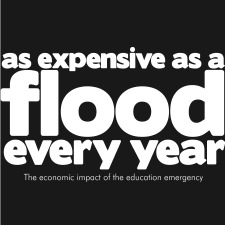

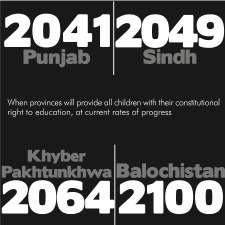
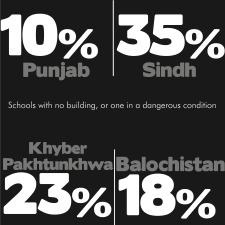
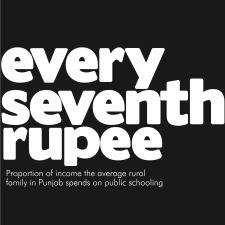
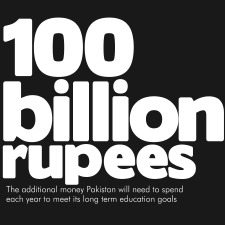
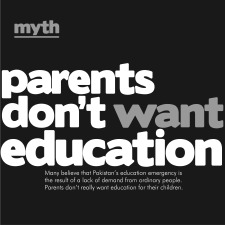


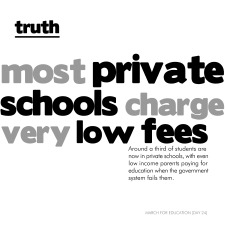
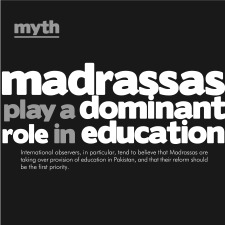
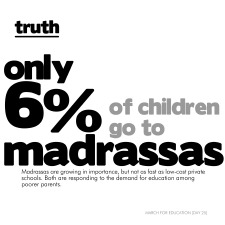

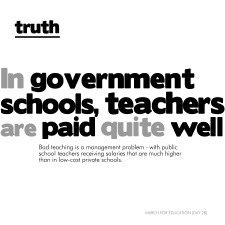



















































http://www.thecitizensfoundation.org/
donate now!!
Actually, there is also a lot of good happening in education in Pakistan. Specially in low cost private education which is giving better schools to middle and lower classes in greater number. Need more, but lets also celebrate what is good.
Dr Zaman saheb and others,
There is really all in Pakistan
that is required for a good country.
It requires no strategy actually …
what is required to be done overnight
is to literally do away with ISI and bring
the army of Pakistan under civilian
control.
Lo and behold ! watch the country race
to progress, growth and prosperity.
The ISI and the army of Palistan as they are,
are scourge.
They are bane and pain.
Pakistan has not benefited by them. they are
required … Period
Very nice post and presentation. We need to keep highlighting this issue and make it the highest priority. I disagree with those who think we know this already. NO WE DONT. If we did, we would have been acting differently!
Inspired by your valuable feed l on Education Emergency I have the following to submit in this regard.
-What we need only is an Eidhee in Education..full time dedicated trust worthy and capable of macro management.Funds will follow to the Trust worthy.
We need some one who can bring such trust worthy people young or old around to deployed according to their capabilities..
-We have a growing reserve of the experienced and educated people who might be mobilized to make use of their capabilities…
-If it is an emergent situation which infact it is why not deploy the army for help in this regard.The Armed Forces. are stationed in every part of the country and they might find a reasonable role to play in this regard.
people might feel happy to send their children to the schools where the armed forces are doing a noble work.
This might help in bringing out the rate of drop out and absentee rates of the teachers.
-We might develop one curriculum for all system to be taught through electronic medial all over the country utilizing the best services of the teachers in every field.A state net work like ATV can be reserved for this purpose.
mobile net work is no being used for all purposes,It might be best utilised for Educating the people by devising ways and means accordingly.